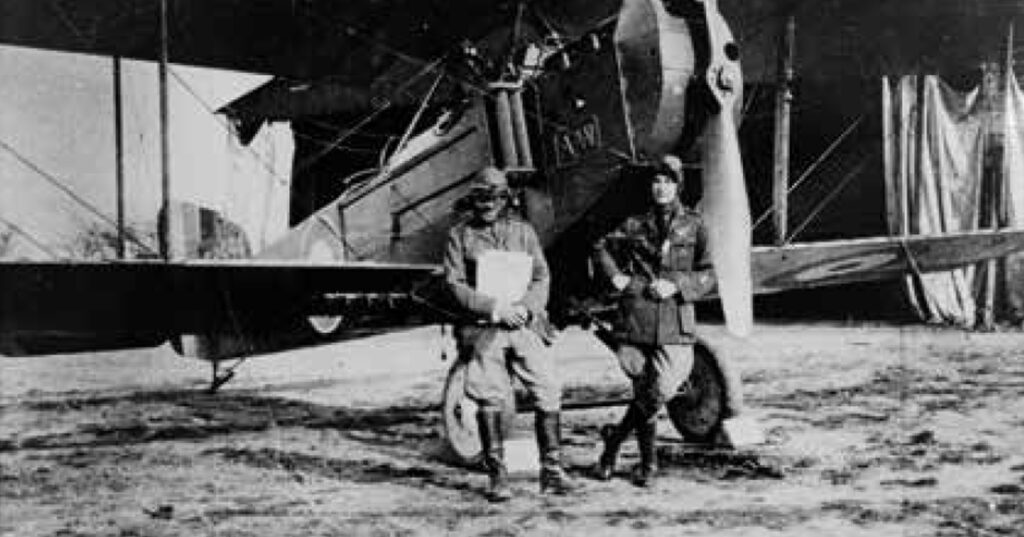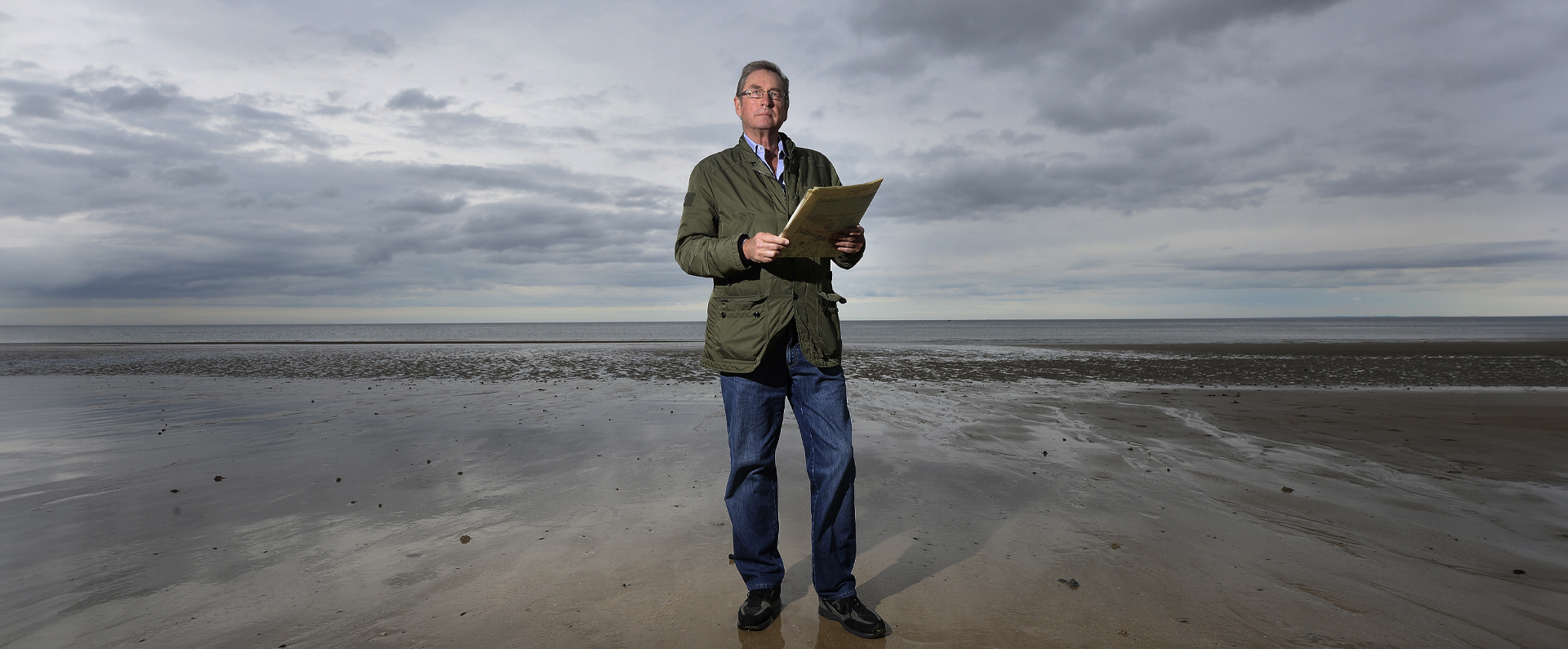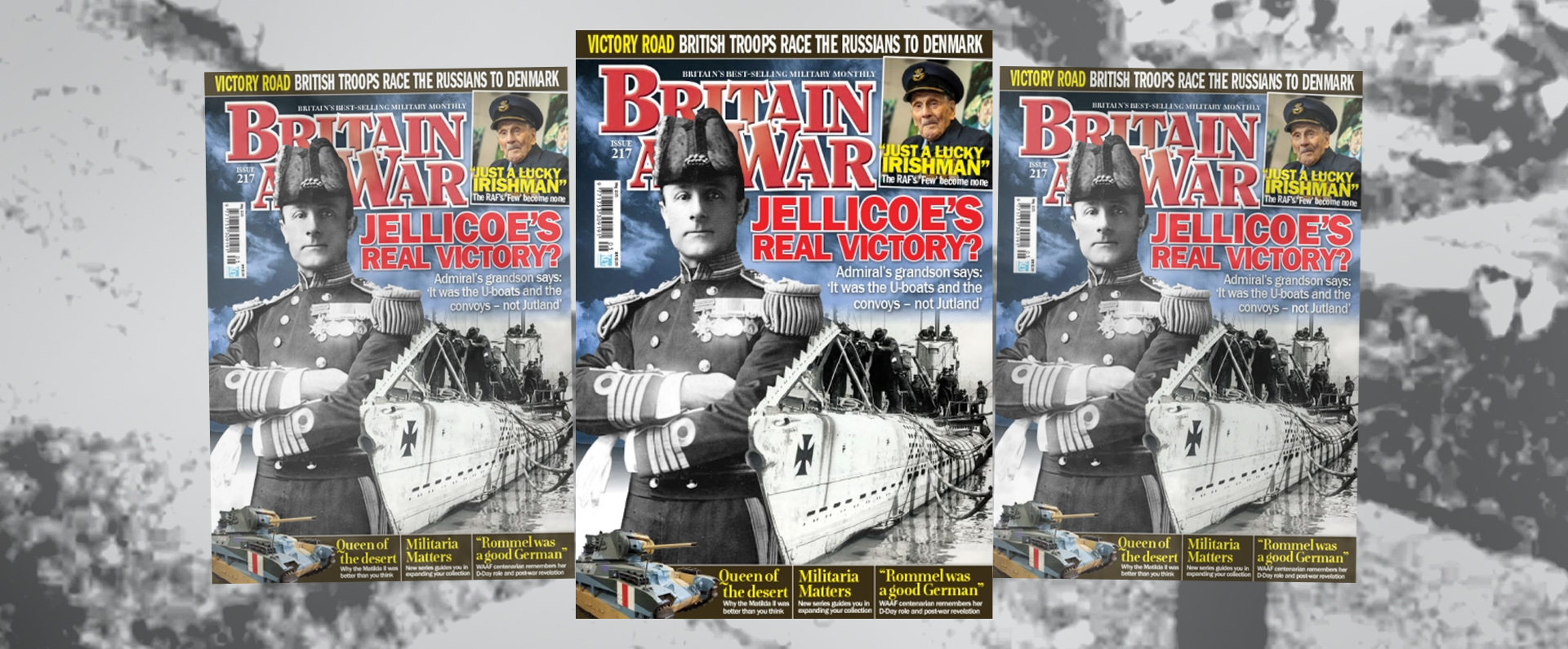
Published in Britain at War in November 2018.
Air Commodore Ferdinand Maurice Felix West VC, CBE, MC: skill
Ferdinand Maurice Felix West was born in Bayswater, central London, on 29 January 1896. He was the son of Lieutenant Francis West, of the East Lancs Regiment, and his wife Clémence (née Comtesse de la Garde de Saignes). Francis West was killed in 1902 during the Second Boer War, when his son was just five years old and his widow was just twenty-six.
After his father’s death, Freddie, as Ferdinand was usually known, was brought up and educated in Italy, attending Genoa University after leaving school. As a schoolboy and student, he became fluent in English, French and Italian. Until the outbreak of the Great War in August 1914, West worked as a clerk in a bank in Zurich, Switzerland. However, after the start of the war, he travelled to England and was enlisted in the Royal Army Medical Corps (RAMC) before being posted to a field ambulance in Ireland.
In May 1915, West was commissioned as a second lieutenant in the 4th Battalion, The Royal Munster Fusiliers and, in November 1915, he arrived in France. Within 36 hours of his arrival in the Loos Sector, he and his comrades were ordered to the Front where, he later recalled, “we lived like rats”.
After being promoted to acting captain in September 1916, West became determined to fly – one of his interests from childhood but also to escape the horrors of trench warfare. In March 1917, his wish was granted when he was seconded to the Royal Flying Corps (RFC). After basic training, he joined 3 Squadron, near Amiens, France, in April of that year and he was quickly promoted to lieutenant and, soon after, to flying officer (observer).
In October 1917, West was chosen for pilot training in Grantham, Lincolnshire, and the following month he made his first solo flight. In January 1918, he joined 8 Squadron at Amiens.
On 21 April 1918, and by now a member of the recently-formed RAF, West, while on patrol, apparently witnessed the “Red Baron”, Manfred von Richthofen, being shot down over France and he landed to investigate just as the German flying ace was dying in his aircraft.
In May, West took part in an action for which he was later – in July 1918 – awarded the Military Cross (MC).
On 10 August 1918, and by then a flight commander, West took part in his VC action north of Roye, France. The citation for his VC, awarded for “outstanding bravery in aerial combat”, takes up the story:
“Captain West, while engaging hostile troops at a low altitude far over the enemy lines, was attacked by seven aircraft. Early in the engagement one of his legs was partially severed by an explosive bullet, and fell powerless into the controls, rendering the machine for the time unmanageable. Lifting his disabled leg, he regained control of the machine, and, although wounded in the other leg, he, with surpassing bravery and devotion to duty, manoeuvred his machine so skilfully that his observer was enabled to get several good bursts into the enemy machines, which drove them away. Captain West, then, with rare courage and determination, desperately wounded as he was, brought his machine over our lines and landed safely. Exhausted by his exertions, he fainted, but on regaining consciousness insisted on writing his report.”
West, who was aged twenty-two at the time of his VC action, was treated in Rouen hospital where he had his badly-damaged left leg amputated. West was later transferred to the London Hospital, Whitechapel.
His VC was announced on 8 November 1918, just three days before the Armistice. He was later fitted with an artificial leg at Roehampton, Surrey. He received his VC from George V at an investiture at Buckingham Palace on 1 March 1919.
After substituting his basic wooden leg for a more advanced Desoutter limb, he revived his RAF career. He received a permanent commission, initially as a lieutenant, in the RAF in August 1919 and was soon flying again, to start with without permission.
On 19 January 1922, West married Winifed Leslie at Westminster Cathedral in central London and the couple went on to have a son. During the inter-war years, West’s RAF career blossomed and he received several promotions, with both foreign and home postings. From 1936-9, he was Air Attaché to Finland, Estonia and Latvia.
After the outbreak of the Second World War in September 1939, West, by then aged forty-three, was appointed as temporary group captain. However, after serving in France, he was invalided to Aldershot Military Hospital in Hampshire with a burst ulcer over Christmas 1939.
After making a good recovery, senior postings followed to Italy and Switzerland to undertake secret counter-intelligence work. He served throughout the Second World War and in the summer of 1945 he was made head of Directorate of Foreign Liaison. In the same year, he was made a CBE (Military Division).
West retired from the RAF on 29 March 1946 in the rank of air commodore and joined film distributors, J Arthur Rank, becoming managing director of one its associated companies, Eagle-Lion Distributors, the following year.
From 1956-88, West was an active committee member of the Victoria Cross and George Cross Association. In 1962, he was the subject of a biography, The Winged Diplomat, written by P.R. Reid.
West died at Princess Margaret Hospital, Windsor, Berkshire, on 7 July 1988, aged ninety-two, when he was the last surviving VC recipient from the Great War. His name is commemorated on the RAF Memorial, St Clement Danes, London, and he was the subject of a portrait by Henry Campbell that hangs in the RAF Museum, Hendon, London.
I do not own West’s VC group but it is nevertheless on display at the Lord Ashcroft Gallery in the Imperial War Museum, London: it among the decorations that has been placed in the care of the IWM.
Download a PDF of the original Britain at War article
For more information, visit:
LordAshcroftOnBravery.com

